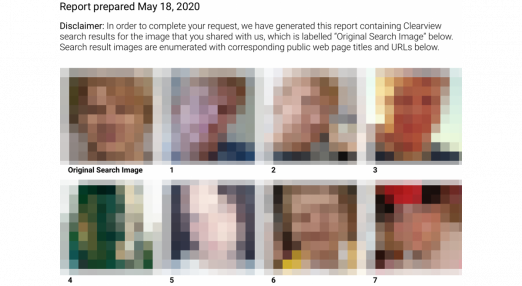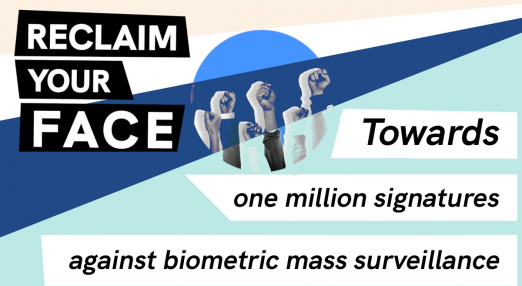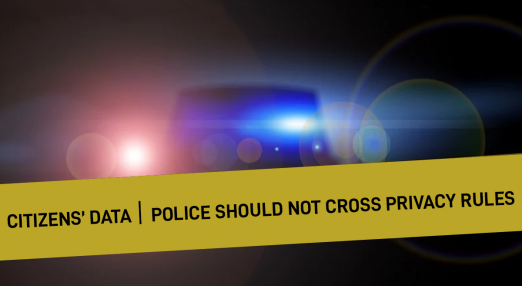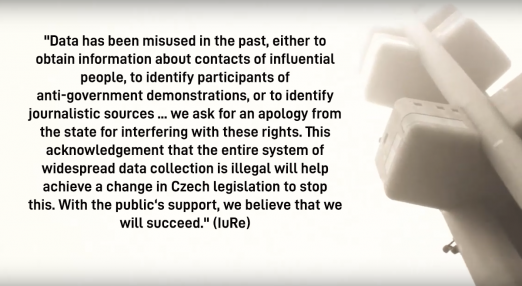Privacy and data protection
Privacy and data protection are essential for us to live, connect, work, create, organise and more. Governments and companies have long used mass surveillance for control trying to legitimise snooping for health, security or other reasons. The near-total digitisation of our lives has made it easier to control, profile and profit from our attention, data, bodies and behaviours in ways that are very difficult for us to understand and challenge. European data protection standards such as the GDPR are a good step forward but we need more to effectively ensure enforcement and protection against unlawful surveillance practices.
Filter resources
-

How to Reclaim Your Face From Clearview AI
The Hamburg Data Protection Authority deemed Clearview AI’s biometric photo database illegal in the EU as a result of a complaint Matthias Marx, a member of the Chaos Computer Club (an EDRi member) filed.
Read more
-

#PrivacyCamp21: Event Summary
The theme of the 9th edition of Privacy Camp was "Digital rights for change: Reclaiming infrastructures, repairing the future" and included thirteen sessions on a variety of topics. The event was attended by 250 people. If you missed the event or want a reminder of what happened in the session, find the session summaries below.
Read more
-

EU Terrorist Content Online Regulation Could Curtail Freedom of Expression across Europe
Counter-terrorism laws that have continued to pile up in the past years in Europe have constantly eroded the rule of law and reinforced executive powers of the state to the detriment of judicial oversight.
Read more
-

The Dating App “Grindr” to be fined almost € 10 Mio
On 26 January, the Norwegian Data Protection Authority upheld the complaints, confirming that Grindr did not recive valid consent from users in an advance notification. The Authority imposes a fine of 100 Mio NOK (€ 9.63 Mio or $ 11.69 Mio) on Grindr. An enormous fine, as Grindr only reported a profit of $ 31 Mio in 2019 - a third of which is now gone. EDRi member noyb assisted with writing the legal analysis and formal complaints.
Read more
-

ReclaimYourFace activates the public and civil society to ban biometric mass surveillance
The EDRi network and partners launched the first phase of the Reclaim Your Face campaign, which focuses on raising awareness and investigating and challenging abusive uses of facial recognition and other biometric tech at a local and national level, in November 2020. The coalition has achieved several wins in the two months since. However much remains to be done in the movement to reclaim our faces and ban biometric mass surveillance in Europe!
Read more
-

What went down at #PrivacyCamp21?
EDRi’s annual flagship event Privacy Camp took place yesterday, on 26 January, for the first time online. We hope many of you were able to attend and that you found the event just as inspirational as the in-person experience.
Read more
-

La Quadrature du Net asks for renewed support to challenge TERREG in France
In light of the European Parliament's vote on the Regulation to prevent the dissemination of said “terrorist content”, EDRi observer La Quadrature du Net (LQDN) sheds light on some of the most concerning provisions which have to be addressed before the final adoption of the regulation.
Read more
-

The pros and cons of moving to e-IDs
EDRi member Epicenter.works give their position on electronic identity (e-ID) in light of the continues work on e-ID in Austria. They share that as convenient as the e-ID may seem and as much it is being communicated as the logical evolution of the classic ID, caution must be exercised when it comes to creating, storing and accessing sensitive identity data. Utmost caution is required when the private sector and the state use shared infrastructures for this purpose.
Read more
-

EDRi-gram, 27 January 2021
We hope many of you were able to join us at Privacy Camp 2021 yesterday which brought together 245 academics, activists and privacy experts from across the world. Stay tuned for the key takeaways. In this edition of the EDRi-gram we showcase the mobilisation efforts and victories so far from the #ReclaimYourFace campaign, share Privacy International's research on political ads and much more.
Read more
-

Data retention concerns resurfaces in Norway
EDRi member, EFN expresses serious concerns regarding the changes to the Norwegian Electronic Communications Act proposed by the Norwegian government.
Read more
-

When the police’s IT-systems are not in order, everyone loses
Without the trust of citizens, the police cannot do their job properly. That is why it is important that the police are extremely careful with citizens' data. But an analysis by EDRi member Bits of Freedom shows that of all 36 'mission critical' systems of the police, not one complies with the rules on privacy and information security.
Read more
-

IuRe crowdfunds to end data retention in the Czech Republic
The digital-legal organisation, EDRi member, Iuridicum Remedium is crowdfunding to take the Czech government to court to end the widespread collection of metadata from telephone and online communication of every user in the country (so-called data retention). The case willrely on a ruling by the EU Court of Justice, which declared that the large-scale collection of metadata was inadmissible, for the third time last October. Crowdfunding a legal case in the public‘s interest is an alternative to dysfunctional class actions.
Read more
